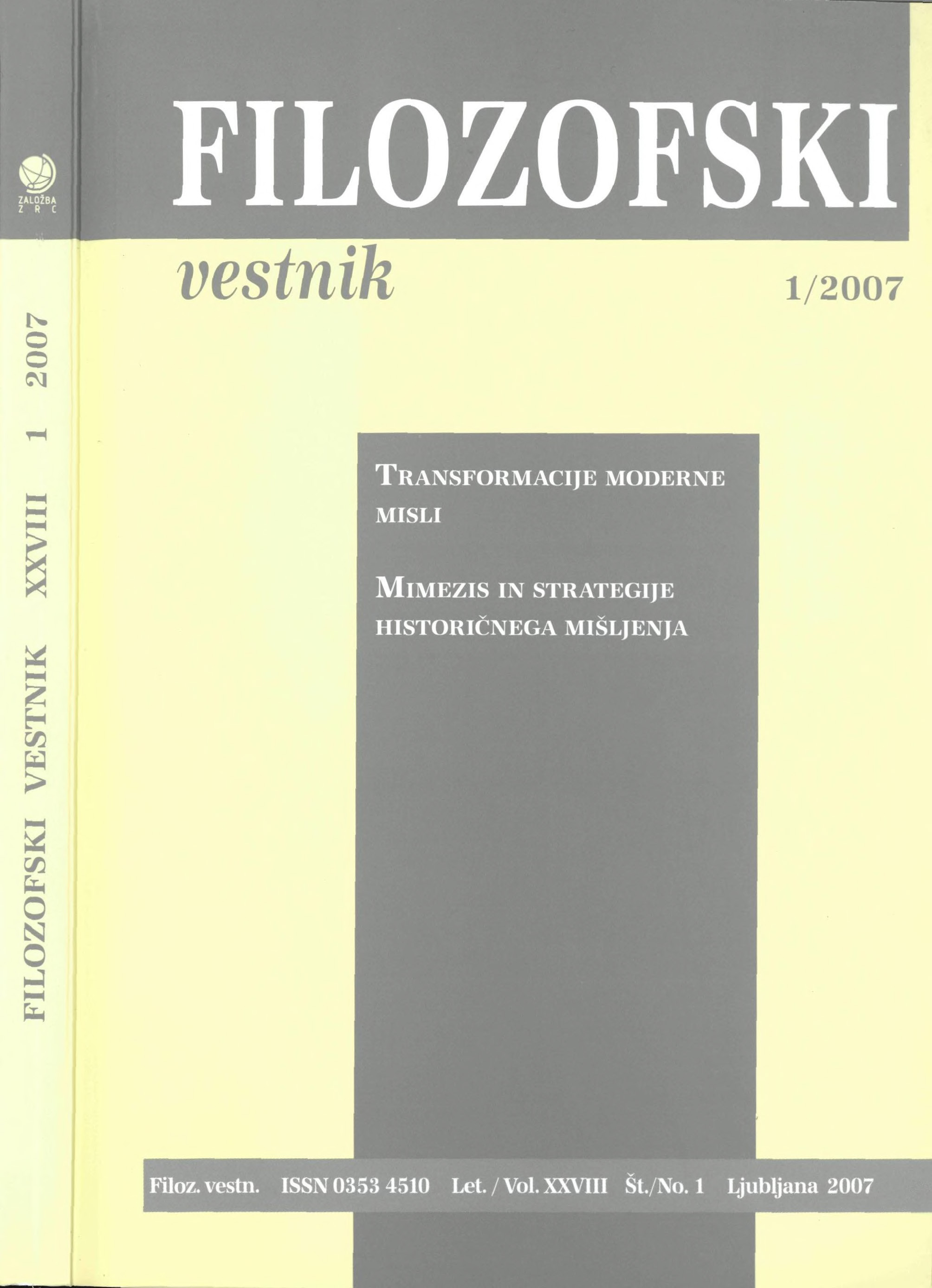Ponavljanje
Ključne besede:
ponavljanje, razlika, reprezentacija, objekt a, komedija, tragedijaPovzetek
Eden izmed konceptualnih dogodkov, ki zaznamujejo sodobno post-heglovsko filozofijo, je vznik koncepta ponavljanja kot samostojnega in ključnega pojma. Marx, Nietzsche, Kierkegaard, Freud ter kasneje Lacan in Deleuze – konceptualizacija ponavljanja je v osrčju projektov vseh teh mislecev. Med njimi obstajajo pomembne razlike, vsem pa je skupno to, da postavljajo in analizirajo ponavljanje kot v temelju različno od logike reprezentacije. Prispevek začne s kratkim orisom Marxovih razmislekov o ponavljanju v razmerju do revolucije (v spisu »Osemnajsti brumaire Ludvika Bonaparta«), nato pa se ukvarja zlasti z Deleuzeom in Lacanom ter podobnostim in razlikam njune konceptualizacije ponavljanja. Za Deleuzea ponavljanje, kakršno obstaja onstran reprezentacije, tvori emancipatorično realizacijo biti kot razlike. Za Lacana ponavljanje tvori hrbtno stran reprezentacije in ga ni mogoče ločiti od nje, čeprav sta radikalno heterogena. Povezuje ga s kontingenco, ki je na delu pri sami konstituciji subjekta. Iz te perspektive se prispevek v zaključku spusti še v analizo povezave med ponavljanjem in komedijo.Prenosi
Podatki o prenosih še niso na voljo.
Prenosi
Objavljeno
2016-03-05
Kako citirati
Zupančič, A. (2016). Ponavljanje. Filozofski Vestnik, 28(1). Pridobljeno od https://ojs.zrc-sazu.si/filozofski-vestnik/article/view/4387
Številka
Rubrike
Transformacije moderne misli
Licenca
Avtorji jamčijo, da je delo njihova avtorska stvaritev, da v njem niso kršene avtorske pravice tretjih oseb ali kake druge pravice. V primeru zahtevkov tretjih oseb se avtorji zavezujejo, da bodo varovali interese založnika ter da bodo povrnili morebitno škodo.
Podrobneje v rubriki: Prispevki





